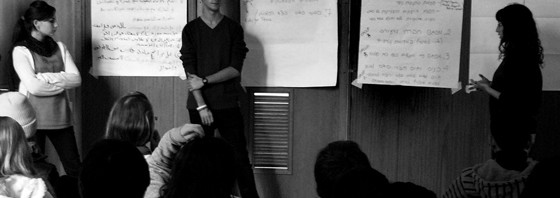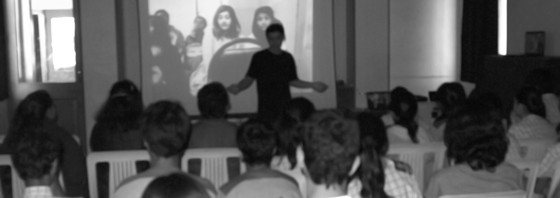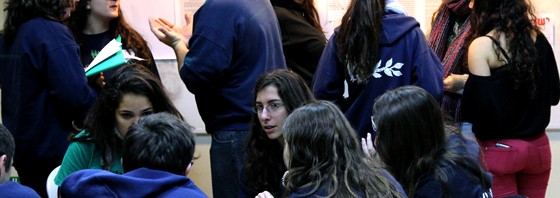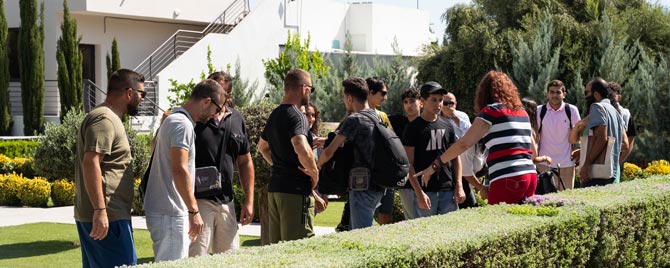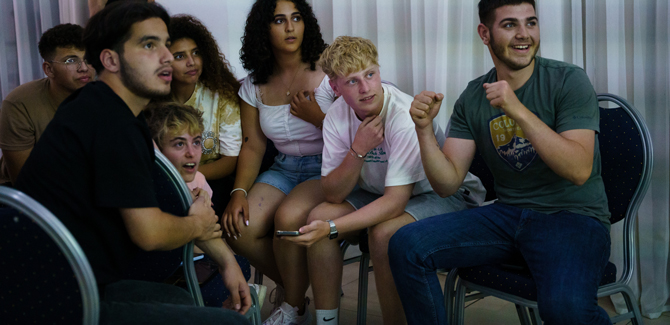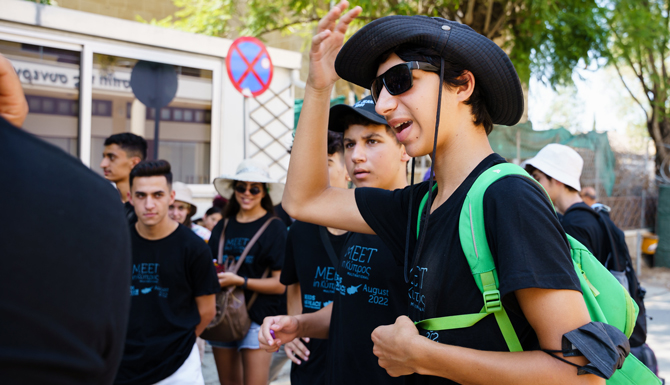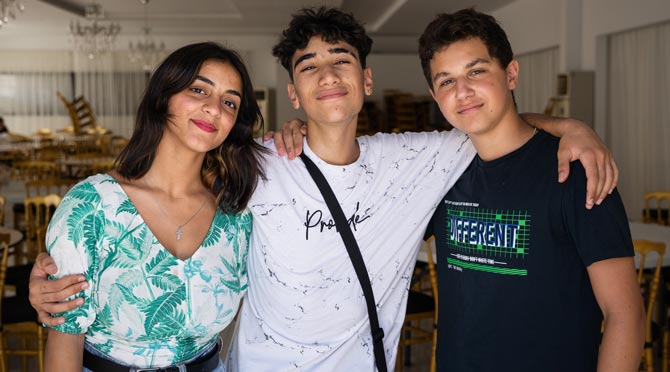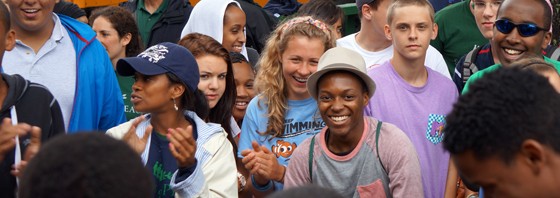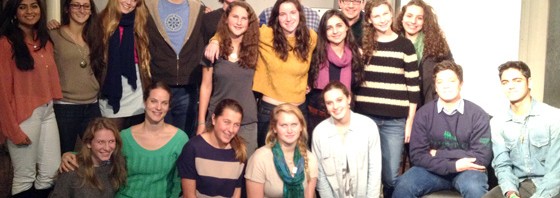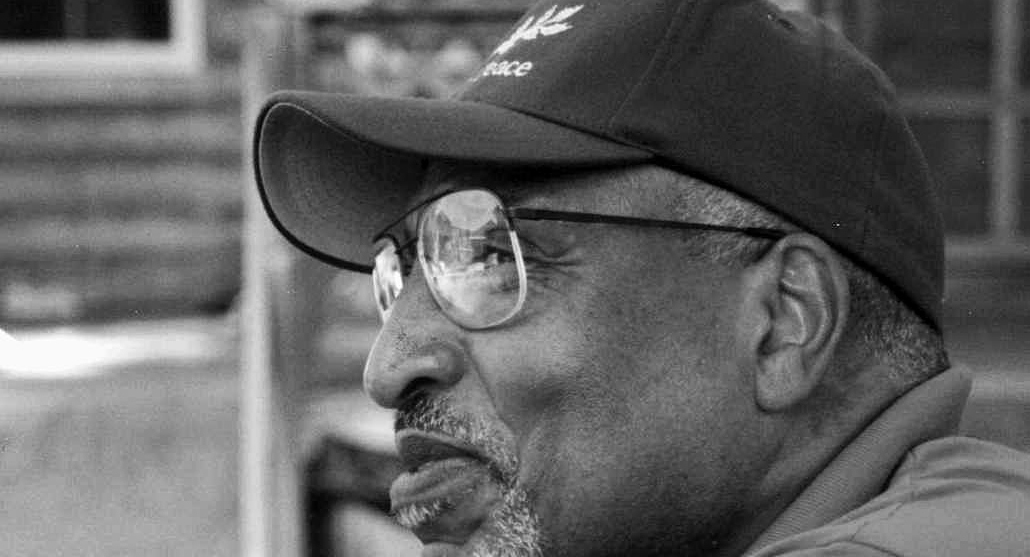As conflict grows on campuses and in communities, connection is our best hope.
By Eva Armour, Vishnu Swaminathan
SEEDS OF PEACE is a long-running nonprofit that brings together youth from conflict zones to engage in dialogue and learn leadership skills. Eva Armour is its Chief Impact Officer, and Vishnu Swaminathan is its Chief Operating Officer.
In this time of intense polarization, so many of us are seeking but struggling to find healthy and effective ways to engage colleagues, classmates, or even family on deeply divisive issues — from Israel, Gaza, and campus protests, to abortion and immigration.
We often focus on the arguments without thinking about the part that matters just as much (if not more): how we engage with each other. How we engage conveys our values, sets culture, and can even determine how successful we are at making progress on the issues we care about.
This is particularly true, and also most challenging, when the stakes are high — and when lives are on the line, and we are confronted with horrifying images, it is seemingly impossible. In moments like these, anyone who disagrees with us is not only wrong but fundamentally intolerable. Yet this is when we need to stay most connected to each other’s humanity.
Otherwise, the only path is deeper disconnection, dehumanization of the other, and violence. We can’t build institutions or societies grounded in care and community by shaming or screaming at each other. We can’t expect others to see our full humanity when we deny them theirs.
That is why Seeds of Peace has, for over 30 years, been bringing young people together across lines of difference from the United States and more than 25 other countries. Over 8,000 of these young leaders have now spent part of a summer at the Seeds of Peace Camp, engaging face-to-face in the hard work of dialogue.
Dialogue is a way to better understand ourselves, each other, and the world. It is not debate, negotiation, or group therapy (though it can be therapeutic). Perhaps most importantly, it is also not an end goal in itself but rather a first step and then a continual process towards taking informed action.
For those of us who are searching for ways to engage others in our lives productively on difficult topics, here are three tested strategies to help build bridges and make interactions more constructive and less destructive.
Find ways to create a connection.
Connection is an antidote to division and violence. Instead of avoiding or attacking those you disagree with, seek out opportunities to go deeper. Do your own work first. Enter conversations with genuine curiosity and practice ways to regulate your body and emotions in order to stay open to listening, even when met with opinions with which you fiercely disagree. Be mindful of defenses and deflections; look for ways to align, even when disagreeing. And do all of this without fear: either you will validate your perspective or hear something new that moves you towards deeper understanding.
The hard work of staying in dialogue with those with whom we share little in common and sitting with our deep discomfort builds empathy and connection that prevents demonization.
Move beyond sides.
Polarization typically results in pressure to take sides: to be ‘pro’ one group necessitates being ‘anti’ the other. The goal of dialogue isn’t to validate all sides but to increase our capacity to hold multiple truths and redefine the ‘sides’ altogether. It strengthens how we act without diminishing the gravity or urgency of the moment. How might we align and organize per shared values, drawing on the power of our different identities? How might that bring us closer to creating more safe and just communities?
Use your imagination.
Any path forward will require us to first imagine beyond our current realities. Seeds of Peace creates spaces like our camp that allow us to imagine and practice a version of the future that has yet to be born into existence. Doing so is messy and often challenging, but it also expands our ideas for what’s possible and inspires people to work towards realizing it in their communities. As our alumni declared upon returning home after experiencing living together, “We refuse to accept what is when we know what can be.”
We are in a character and values-defining moment. The way we engage with each other now will predict the course for what comes next, and solutions stand the greatest chance for success when they are grounded in dialogue and mutual respect.
“The wish to not have to deal with the other is an illusion,” wrote one of our alumni in the Middle East recently. “And I hope this realization becomes a source of strength rather than weakness. That inevitably, we have to find a way to make this work for all of us. Otherwise, it will work for none of us.”




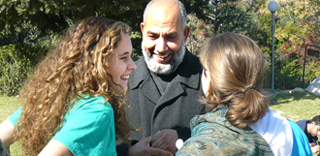 “Now, more than ever, I believe that it is important to dialogue with the other side,” said one of the Israeli and Palestinian teenagers who participated in an overnight seminar on February 5-6.
“Now, more than ever, I believe that it is important to dialogue with the other side,” said one of the Israeli and Palestinian teenagers who participated in an overnight seminar on February 5-6.
 Join us: Peace Market ’10
Join us: Peace Market ’10 2010 Indo-Pak Homestays
2010 Indo-Pak Homestays BBC Radio Interview
BBC Radio Interview “Camp has taught me how to be a good listener, and how to express my views on the conflict and the problems it creates in my life. Coming home is just the beginning—the journey has just started. Sometimes I feel like I now have the hardest job in the world: to get our message out everywhere and to everybody.” Mai (Seed from Hebron)
“Camp has taught me how to be a good listener, and how to express my views on the conflict and the problems it creates in my life. Coming home is just the beginning—the journey has just started. Sometimes I feel like I now have the hardest job in the world: to get our message out everywhere and to everybody.” Mai (Seed from Hebron) 

